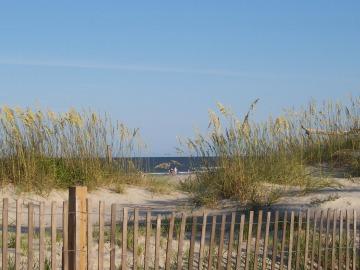
Section Branding
Header Content
Georgia Beach Warnings, Closings Triple
Primary Content

An environmental group reported that beach closings and advisories due to pollution went up the last year in Georgia totaling 209 days of closed or under advisory beaches.
The numbers are according to the Natural Resource Defense Council's 20th annual beach water quality report.
Releasing the report, Environment Georgia noted that, across the country, there were more than 18,000 closing and advisory days at ocean, bay and Great Lakes beaches in 2009
As of July 23, the oil disaster in the Gulf of Mexico had led to 1,755 days of beach closing, advisories and notices.
"When families head to the beach this summer, they shouldn’t have to worry about swimming in polluted water that can make them sick," said Jennette Gayer of Environment Georgia. "Georgians shouldn’t have to choose between swimming in sewage and staying out of the water."
The report, Testing the Waters: A Guide to Water Quality at Vacation Beaches, used data from the U.S. Environmental Protection Agency.
The report tallied 209 closings and advisories in Georgia, not counting 485 days of beaches that were closed for more than six weeks.
In comparison 2008 posted 72 days of advisories or closings.
The report also provides a five-star rating guide for 200 of the nation’s most popular beaches, based on indicators of water quality, monitoring frequency, and public notification of contamination.
In Georgia, North End Beach and Strand Beach on Tybee Island as well as East Beach in Glynn County received four stars.
Tags: Jekyll Island, beach, Department of Natural Resources, Tybee Island, Environmental Protection Agency, water pollution, St. Simons Island, Environment Georgia, GPB News, Natural Resources Defense Council, Atlantic coast, Atlantic beaches, beach advisory, Jennette Gayer
Bottom Content

